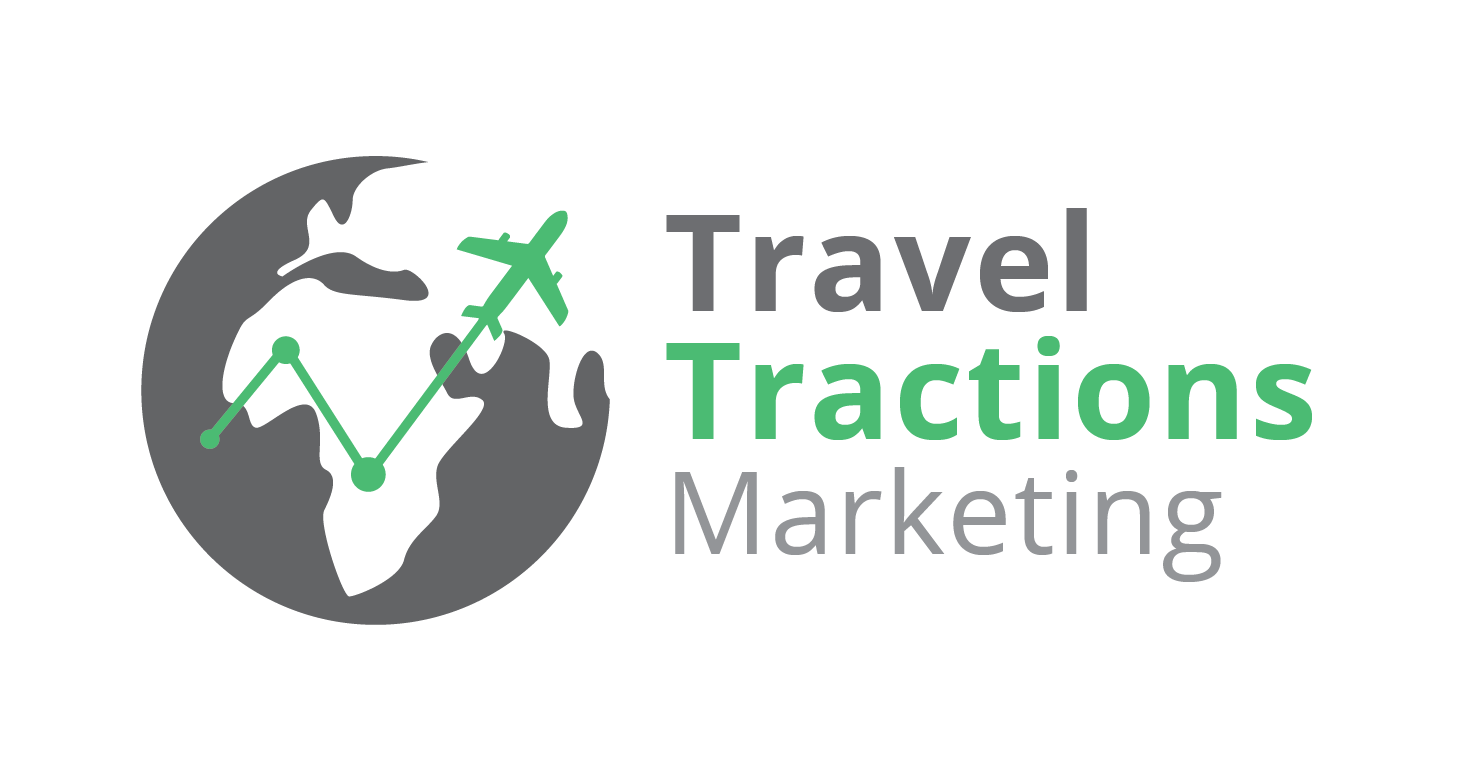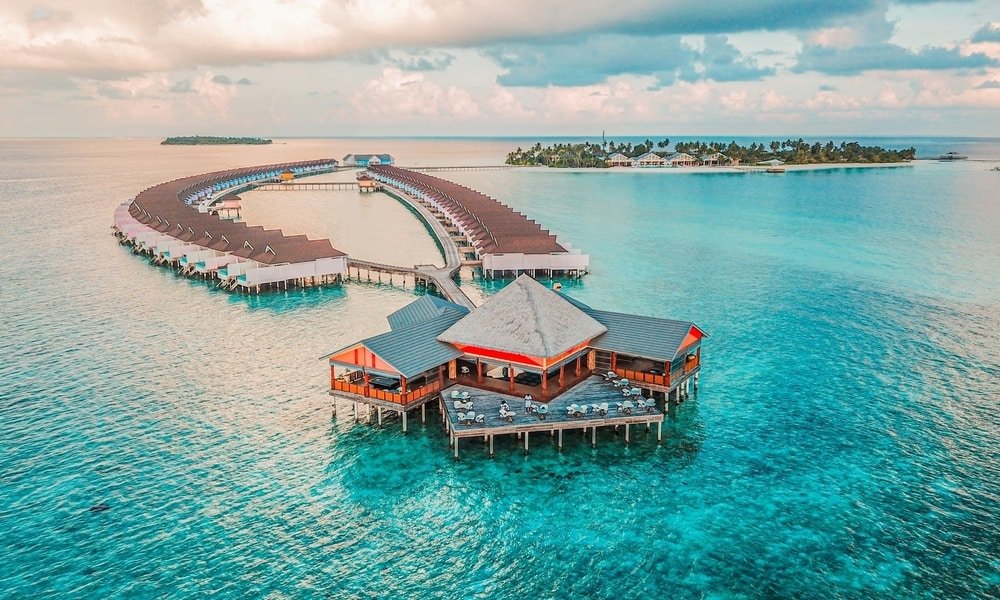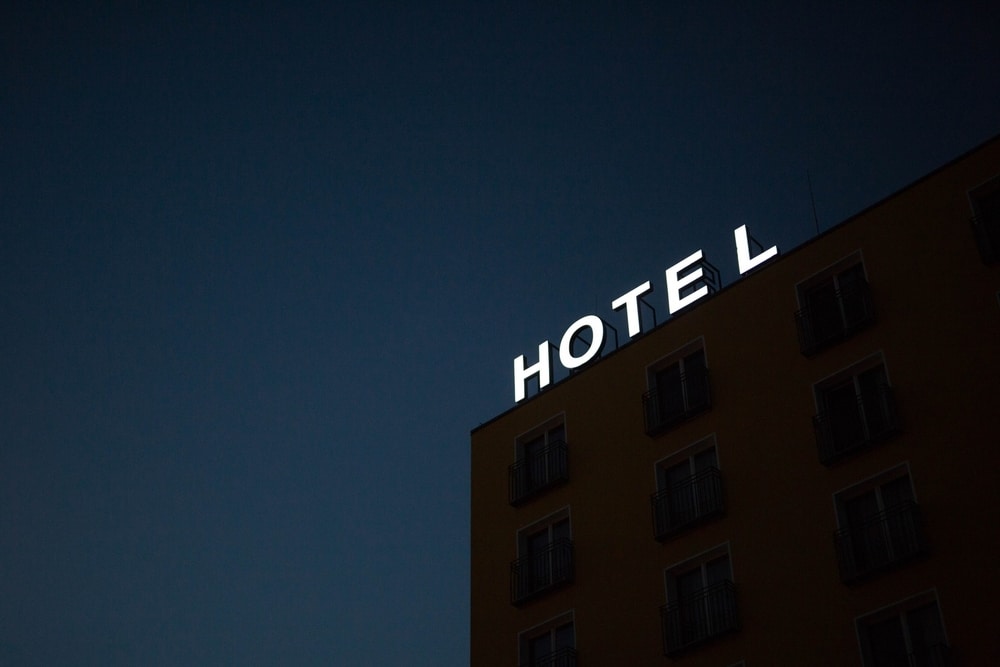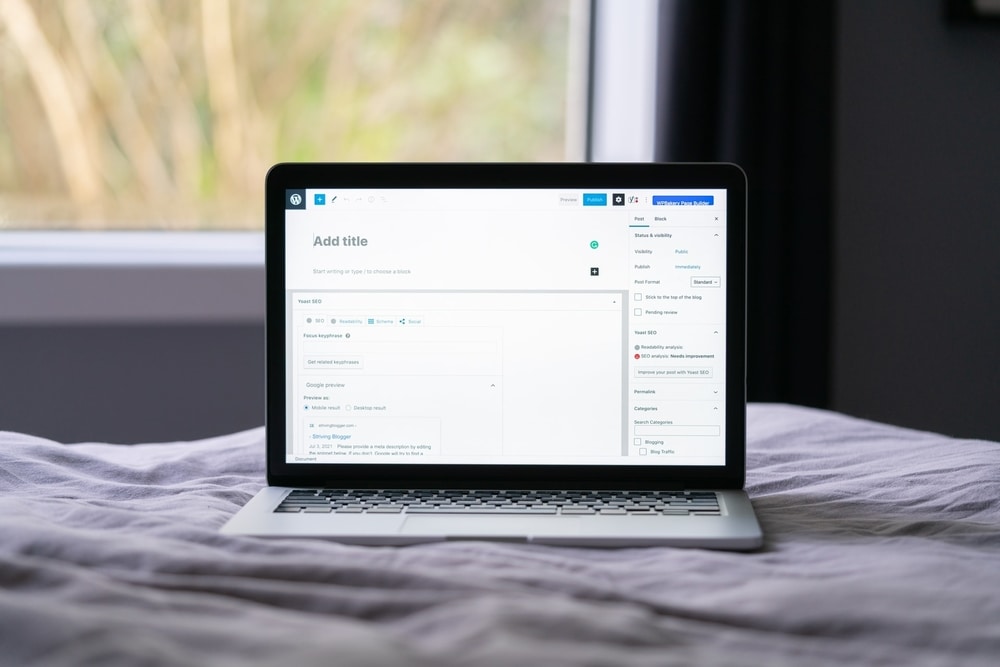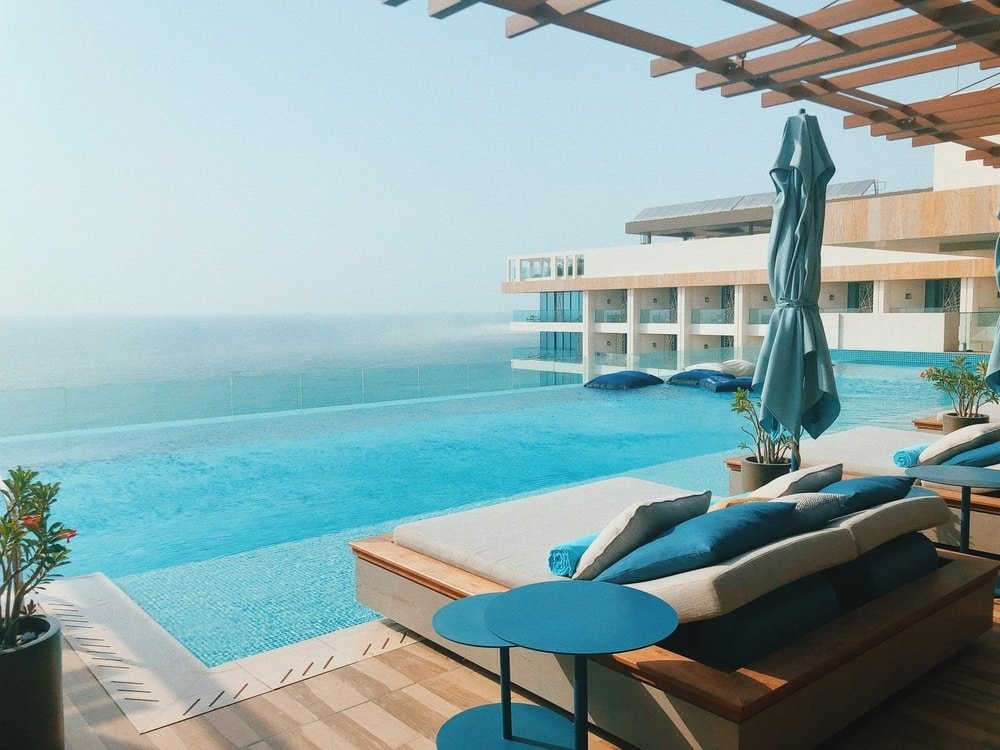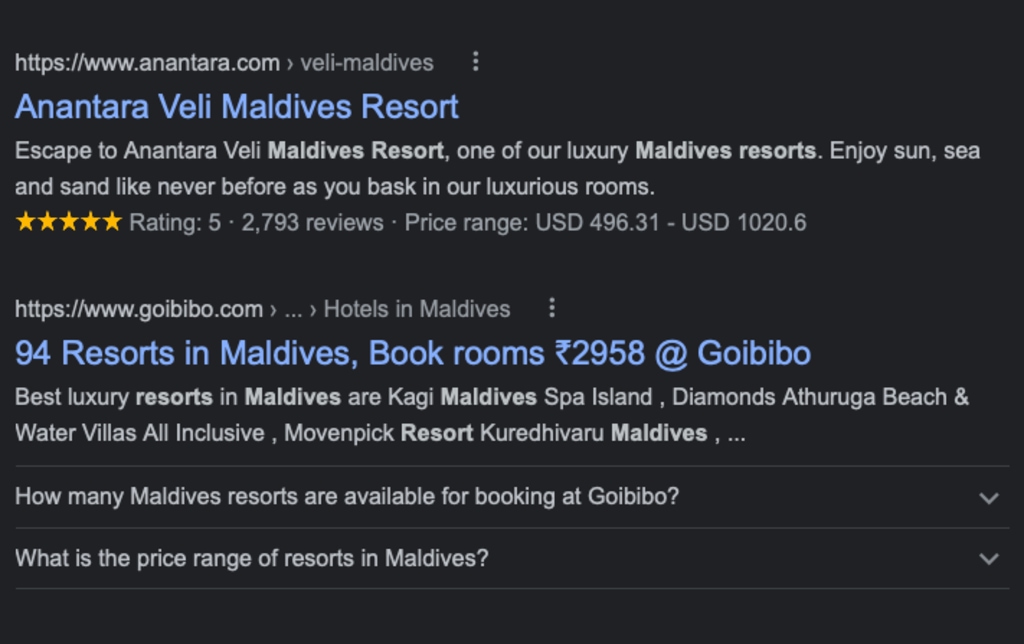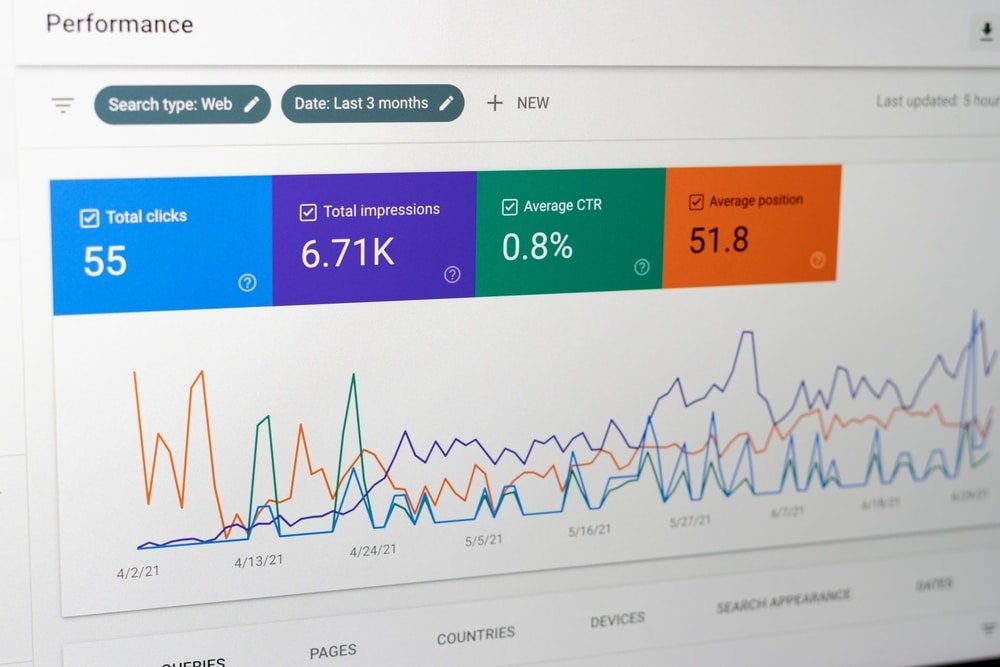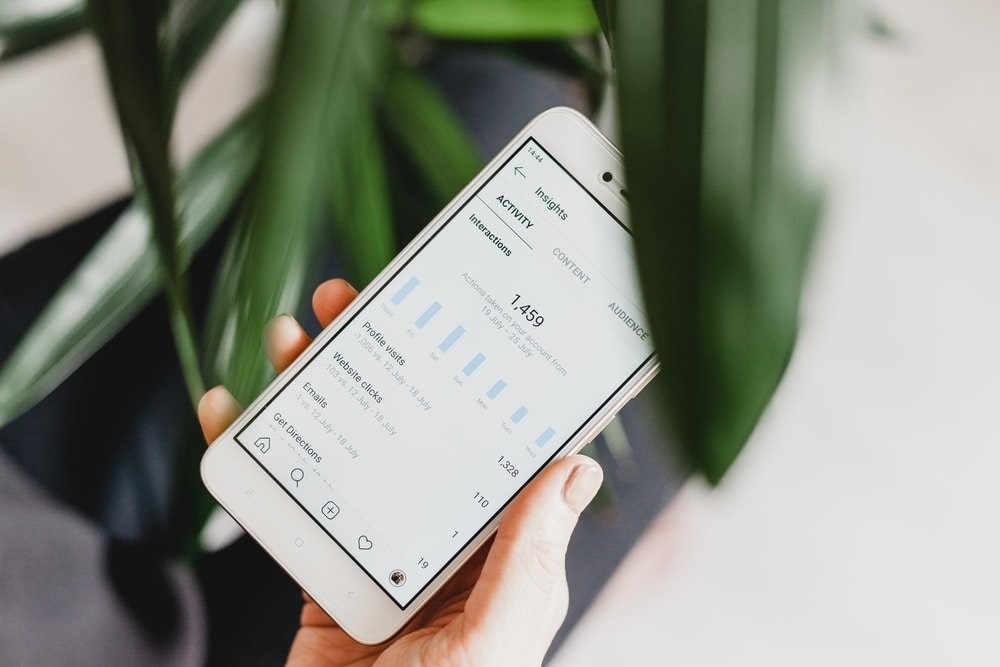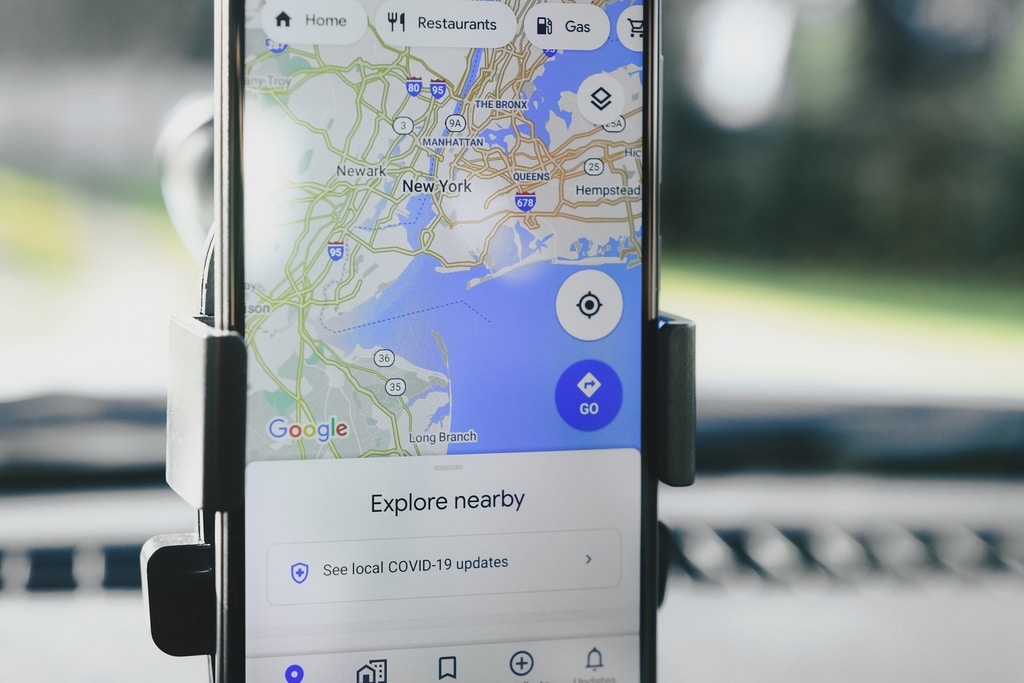
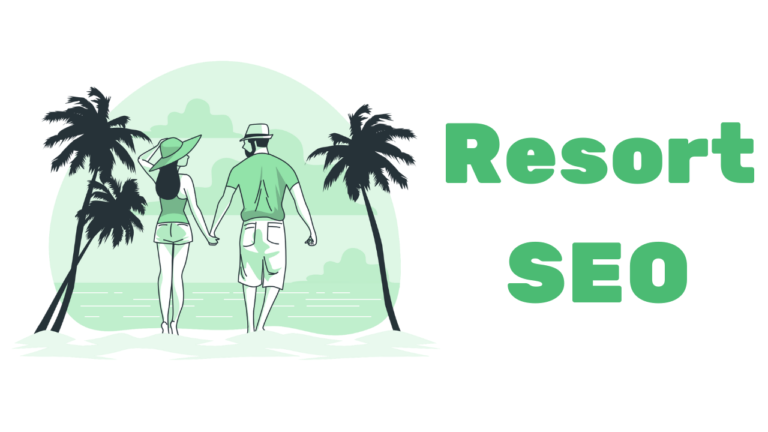
Resort SEO Essentials | Search Engine Optimisation Guide
In this digital era, having a website has become a must for most businesses, including resorts. However, to beat your competitors is not simply about owning a website.
Consumers generally land on your webpages through search engines. This means that the higher you rank, the more visitors you will get on your website, and subsequently more bookings, too.
But how do you get your hotel or resort website to rank higher on search engines? The answer is through search engine optimisation (SEO). In this article, I’ll highlight everything you need to know about hotel SEO to help your property get discovered online.
Tip: If you do not have a website yet or need to optimize yours? Our team of experts are happy to assist. Click here for our tourism website design services
What is Resort SEO?
Search Engine Optimisation (SEO) is a process designed to optimise and improve the positioning of a website on search engine result pages (SERPs). Examples of search engines include Yahoo, ChatGPT, Bing, and Google.
In the context of hotels, SEO means improving the ranking of the hotel’s website in organic search results. Organic search is one of the best ways for people to discover and access online content. Therefore, a good SEO strategy is essential for hotels to improve the quality and quantity of traffic to their respective websites.
This doesn’t only apply to search engines anymore, but for social media like Tik Tok and Instagram, which has gained a lot of search traffic in the last year and of course new AI platforms like ChatGPT. All of these platforms need to find our website by your efforts to optimize for search.
Note: When we refer to search engines, we are usually referring to Google. As with most businesses, Google is the best search engine for hotel SEO. In fact, this search engine receives over 70+% of global searches (79% in 2025 but we suspect it to decrease). The others are important, but more on that in another post. It is, however, important that you work on getting your hotel to rank high on all search engines.
Why is SEO Important for Resorts?
The hotel industry is highly saturated and beating out the competition is not easy. If you want to get direct bookings through your hotel website, you need to generate traffic. Traffic refers to the users who visit your site from a search engine result.
One of the best ways to increase traffic is by ranking highly on search engine result pages for a given query. Websites that appear on the first page of Google results receive more than 90% of total traffic. For your hotel website to be one of the top-ranking pages for a given query, you will need a well-executed SEO strategy.
Tip: If you’re trying to get more traffic to your resort website’s blog pages, check out this article on how to increase traffic to your blog.
On-Site SEO for Hotels and Resorts
On-site SEO is the practice of optimising elements on a website to rank higher and earn more organic traffic from search engines. Some elements that you can optimise include:
- Page titles
- Meta descriptions
- URL structure
- Heading tags
- Website content
- Image alt text
The aim of on-site SEO for hotels is to make it as easy as possible for both search engines and users to understand:
- What your hotel website is about, as well as what each page is about
- If any of those pages are relevant to a search query or keyword
- If any of the pages are useful and worthy of ranking well on a search engine results page
Below is a step-by-step strategy on how you can improve your hotel’s on-page SEO.
1. Define Your Target Audience
One of the first steps to developing an SEO strategy for your hotel is to define your target audience. This includes who they are, what they like, their booking patterns, and other useful information.
For example, if your property was a beach resort, your target audience might be leisure travellers, families, and groups. Alternatively, if you had a business hotel in the CBD, your target audience might be corporates and business travellers.
Once you have identified your target audience, think about what they will search for when seeking accommodations. For example, if your property was a beach resort, your target audience might search “best resorts in…”.
This is called a search term. The next step will be to identify more search terms or keywords.
2. Use Keywords
Keywords are a crucial component of SEO. They are the words and phrases that people use in search engines. These words will inform what you will build content around.
For example, you may know that your target audience will be looking for a great birding or family experience in the area, it would be worth creating a blog post about “List of birds you can find around x” or “best things to do with your family around x”.
There is a wide range of keywords that will apply to your hotel and location. As such, it is important to ensure that your keywords and user intent align. This way, the content you create will address what users are looking for, and Google will identify your content as useful and relevant.
Types of Keywords
There are two types of keywords: broad and long tail. A broad search might be ‘hotel in Cape Town’ (these are mostly taken up by the big booking sites), while a long tail search would be more specific. An example of a long-tail keyword is ‘hotel for business travellers in Cape Town CBD’.
As Google is becoming better at understanding user intent, long-tail keywords are now less of a priority. Instead, medium-tail keywords are preferred. So, ‘hotel for business travellers in Cape Town CBD’ would be answered just as well as ‘business hotel Cape Town’.
How to Conduct Keyword Research for SEO
To develop a keyword strategy for SEO, you should target words and phrases centred around your hotel’s main features and characteristics. These could be terms people use to describe your hotel, why people travel to your location, etc.
Once you have identified keywords or phrases that you want to target, it’s a good idea to validate these using a keyword research tool. Examples of keyword research tools are Ahrefs, Google Keyword Planner, and Ubersuggest.
These tools will give you insights into the average number of times a keyword is searched for each month and other useful data. From this data, you can create content that aligns with your user intent.
3. Optimise Page Title, Meta Description and URL
The page title, meta description, and URL are the three essential elements displayed in the search engine results. These play a significant role in the SEO of your hotel website. Below we will take a deeper look at each of these elements.
Page Title
The page title is an HTML tag that appears on search engines and tells users what your website or web page is about. When users look up a phrase online, the search engine will provide them with a list of results that appear as snippets.
Included in this snippet are the page title, URL, and meta description. Some rich results may also display additional information, such as display ratings.
When writing a page title, it’s important to ensure that it is SEO-friendly to both search engine bots and humans. Below are some things to keep in mind when writing page titles for your hotel website:
- Write the page title for humans first as it is humans who decide if they will click on a page or not
- Include your target keyword in your page title. It is best to have this term near the beginning of your title
- Keep your page title short and to the point. The length should ideally be between 50 and 60 characters
There are several other factors you could consider. It includes naturally inserting multiple keywords in your heading (without keyword stuffing) and making your title catchy to improve CTR (click-through rate).
Meta Description
The meta description is an HTML tag that provides a brief summary of a web page. Along with the page title and URL, search engines display the meta description in search results. It is an important SEO ranking factor and can influence click-through rates.
When writing a meta description for your hotel website or web page, consider the following things:
- Aim to include the primary keyword in your meta description, as well as other related keywords
- Ensure your meta description is the optimal length. Google generally cuts off snippets at around 155-160 characters. The ideal range for a good, descriptive meta description is between 50 and 160 characters
When writing your meta description, the information should motivate the user to click the link and visit your website.
Web Page URL
A web page URL is a complete web address used to find particular pages on your hotel’s website. Every URL contains a domain name and other components needed to locate specific pages or pieces of content.
Like the page title and meta description, the URL appears in the snippet on SERPS and plays an important role in hotel SEO. Below are some guidelines for writing an SEO-friendly website URL:
- Ensure that your URL is clear and easy to understand.
- Include your targeted keyword and avoid stuffing extra keywords.
- Separate words with hyphens (dashes) instead of underscores.
- Stay clear of connecting or stop words like is, of, for, with, etc.
An example of an SEO-friendly URL is: “https://yourhotel.com/rooms/”, where “your hotel” is the domain name and “rooms” is the specific page.
4. Optimise Your Hotel Website Content
The next step is content creation and user experience. Content is one of the most important components of an SEO strategy. If you want to rank for keyword searches, you will need quality content to back it up.
There are a number of factors to consider when trying to create valuable content for your hotel website. These are detailed below:
- Relevant: Does the content of your website align with your user intent? You can achieve this by focusing on strong, relevant keywords.
- Authoritative: Your content needs to be in-depth and well researched. You should ensure that your content answers all the user’s questions.
- Trustworthy: It’s important that Google sees your information as reliable. You should make sure that the information you provide is factually correct and up-to-date.
- Unique: Original content is crucial for a well-executed SEO strategy. Avoid copying and pasting content from other sites or elsewhere on your own site. Google tends to penalise duplicate content.
- Friendly: It’s important to consider the user’s experience when creating content. Ensure that your content is digestible and easy to read and that the page is easy to navigate and loads fast.
If you meet these principles, search engines like Google will place greater value on your content. And this may result in your web page ranking higher on SERPs.
5. Arrange Headings and Subheadings
Headings and subheadings help users and search engines to read and understand the text found on your website. They indicate what parts of your content are important and how they’re interconnected.
When considering hotel SEO, you want your content to be as easy to read and follow as possible. Having structured content helps with this and provides excellent opportunities to use your keywords.
The HTML tags (H1, H2, H3, and H4) are used to define headings and subheadings. H1 is generally the title and should include your main keyword. Below is an example of a good heading structure for a hotel website:
- Welcome to the Boston Hotel (H1)
- Our services (H2)
- Rooms (H2)
6. Image Optimisation
The images included on your hotel website play an important role in the effectiveness of your SEO strategy. Having relevant images on your web pages will attract users’ attention, spark emotions, and draw them in. This is especially true in the hotel industry.
The most important factors to consider when optimising images for your hotel website are image quality, image size, and image alt text. We will take a look at each of these below.
Image Quality
Image quality can greatly influence users’ perception of your website, brand, and services. For hotels, we recommend sourcing your own images as opposed to random stock photos from other sites. This way, you can ensure that the images on your site are of good quality and relate to what your hotel has to offer.
Image Size
While you don’t want to sacrifice quality, the file size of your images should not be too large, as this will affect the loading speed of your website. A slow website is not favourable for SEO as it creates a lesser user experience. Your target audience may quickly move on to another hotel website if your pages are loading slowly.
Image Alt Text
Image alt text is an alternate text that appears if an image cannot be displayed. The alt text simply describes what is being shown in the image.
Having image alt texts are important and necessary in cases where:
- An image was to go missing
- The internet connection is too slow
- The device being used can’t load images
- A visually impaired person is using screen readers to consume content.
Additionally, image alt texts provide information to search engines so that they can index your web pages more accurately. There is also something called an image search engine, which plays a salient role in hotel SEO. (sweet-factory.com) You will want to rank here too.
7. Ensure Structured Data
Structured data, or schema, is code that helps search engines better understand the elements on your webpages and how these address user intent. Schema is one of the best ways to optimise a hotel website as it gives users more relevant information in an organised manner.
There are a range of things that you can add to your website’s schema markup, including your hotel name, street address, contact details. Other important information to include in your hotel schema is the stars and rates.
The image above shows an example of how schema helps Google better understand the element’s on a bookings.com page. Shown in the snippet is the accommodation’s star rating and price range, better addressing the user intent.
The important thing with hotel schema is to ensure that it is consistent across all pages. This way, there is no confusion, so Google can deliver clear and informative results to users.
8. Improve Your Website’s Loading Speed
One of the most important factors influencing your hotel website rankings on SERPS is loading speed. Users are often impatient and will not hesitate to move to another site if the web pages are loading too slowly.
There are a number of things you can do to optimise the loading speed of your website. These include:
Compress your images
Reduce the file size of images found on your website. This can significantly improve the loading speed of your webpages. To reduce the file size of your images without sacrificing quality, you can use various tools such as Adobe Photoshop.
Leverage browser caching
Browsers cache a lot of information, such as images, JavaScript files, and more. By leveraging browser caching, when a visitor comes back to your site, the browser doesn’t have to reload the entire page.
Minify your HTML, CSS, and JavaScript
This process involves minimising the space your code takes up. It includes removing unnecessary spaces, commas, and other characters. By optimising your code, you can significantly increase the loading speed of pages on your hotel website.
Eliminate render-blocking resources
Another reason why your website may be loading slowly is that render-blocking resources are preventing important parts of your page from displaying in the browser. On a hotel website, you will want certain elements to load before others.
For example, it is best that your hotel’s logo, banner, and images load first before a social sharing plug-in. As such, it is important that your website’s code reflects this.
Reduce the Number of Redirects to Your Website
Each time a page on your website redirects to another page, your visitor faces additional time waiting for the HTTP request-response cycle to complete. For this reason, reducing the number of redirects on your webpages can improve the loading speed.
9. Make Your Hotel Website Mobile-Friendly
Research suggests that around 63% of Google searches are from mobile devices. As such, you need to ensure that your hotel website is mobile-friendly.
Below are some things to make your hotel website mobile responsive:
- Optimise your website’s loading speed on mobile devices too
- Include the ‘Viewport Meta Tag’
- Compress your images and CSS
- Make your button sizes large enough to work on mobile
- Use large font sizes
- Perform mobile testing
- Add a click-to-call feature
10. Optimise Your Existing Content
If you already have a website for your hotel, you may already have content that could be improved or refreshed. While new content is a key factor in developing strong SEO, optimising the content you already have is also beneficial.
The first step to improving your existing content is identifying opportunities. This means finding out which pages, blogs, or articles are underperforming and stand a good chance of ranking higher in SERPs.
Pages that appear in the top 10 results bring in the most clicks. So, if you have existing articles that aren’t too far off, these may be worth optimising.
To identify opportunities, you can use a tool like Google Search Console or Google Analytics. These tools will show significant keywords and which ones are driving impressions and clicks on your website.
Once you have found out which articles are worth improving, it’s time to begin the optimisations. Below are some basic tips to get you started.
Keep Your Content Fresh
For good SEO, it is important to ensure that the information displayed on your webpages is accurate and up-to-date. If it’s not, the page will lose credibility, as well as organic traffic.
Users may be disappointed if they see that the information on your website is outdated. Perhaps you have dated material, like “Best summer resorts in Fiji for 2013”.
In this case, you would want to update the date making it relevant to the current year. You will also want to ensure that everything on this page is current, including images, prices, and other important information.
Fill the Content Gaps
While updating the existing information, be sure to add any information that may be missing. Check the articles that appear higher than yours for your targeted keywords and see what they have that you don’t.
From here, decide on what you need to add to make your content more comprehensive, ensuring that it covers all the aspects of a specific problem.
Improve Your On-site SEO
This may come as a no-brainer. But to optimise your existing content, you will need to emphasise improving SEO. This means following the steps mentioned above, starting with your keywords.
Using Google Search Console, analyse the keywords driving users to the page you are optimising. You can go back to your own article to check how many times you have mentioned these phrases.
You can then increase the frequency that these keywords are used and add any keywords that may be missing. When adding more keywords to your post, make sure that you maintain a natural voice and flow.
Other areas you may want to improve are the images, links, and heading structure. By meeting the guidelines mentioned above, you are sure to improve your hotel SEO.
Off-site Hotel Search Engine Optimisation
Off-site SEO refers to actions taken outside of your own website to impact your rankings within SERPs. Optimising for off-site ranking factors involves improving search engine and user perception of your site’s authority, relevance, and trust. While you cannot directly control these elements, you can certainly influence them.
Building backlinks is at the heart of off-page SEO. Search engines use the number of backlinks to your web pages, weighing up their value and relevance. A great way to acquire more backlinks to your website is with link building.
When it comes to link building, the pages linking back to you should be high authority sites This will help pass authority to your own page. As search engines see your page being deemed valuable by authority sites, it will favour yours as well.
Other off-site factors influencing your hotel SEO efforts include social media marketing, pay-per-click marketing, online reviews, and user-generated content.
Take Advantage of Google Hotel Search
In 2015, Google introduced a search engine designed specifically for hotels. Through Google Hotel Search, people can quickly find and book accommodations. Making the most of this unique interface is sure to drive more traffic to your hotel website.
For this reason, you should aim to obtain a spot on the first page of hotel listings. You will also need a definitive description of your brand and a visible image of the hotel to drive traffic and conversions.
While this strategy sounds simple, obtaining a spot on the first page is not always easy. Here are a few tips to you enhance your hotel’s visibility:
- Get listed on Google My Business
- Include your hotel name and location in your page title, meta description, and URL
- Ensure your website has high-quality photos to increase conversions and clicks
- Encourage guests to leave positive Google reviews
- Provide useful information, such as hotel descriptions and amenities
Local Search Engine Optimisation for Hotels
Local SEO involves increasing the search visibility of businesses that serve their communities face-to-face. Hotels are among these businesses and can take advantage of this to improve their rankings on SERPs.
Local SEO includes everything from ensuring a franchise location appears in a local search on Google to claiming a business listing. It also involves the management of online reviews and ratings, social media engagement, and more.
On your hotel website, it’s best to include your focus keyword and city name in your title tag, meta description, webpage URL, and header tag. It is also good to start with a citation. A citation is an online reference of your business’s name, address, and phone number (NAP).
Along with NAP, including information such as a business description, hours of operation, directions, images, videos, and reviews is also beneficial. Search engines will use all this information to evaluate the online authority of your hotel. As such, this is an effective strategy for hotel SEO.
Summary on Hotel Search Engine Marketing
Just like other business websites require SEO, hotel websites are no different. Having a well-executed SEO strategy in place can help your property be discovered online.
As outlined above, there are many factors that influence your hotel SEO. From identifying keywords and optimising on-page elements to managing online reviews, you can improve your site’s performance in many ways.
But keep in mind that all these practices will take time to reflect, so you will need to be patient. For more on how you can improve your hotel’s visibility online, check out this article on social media marketing for hotels.

